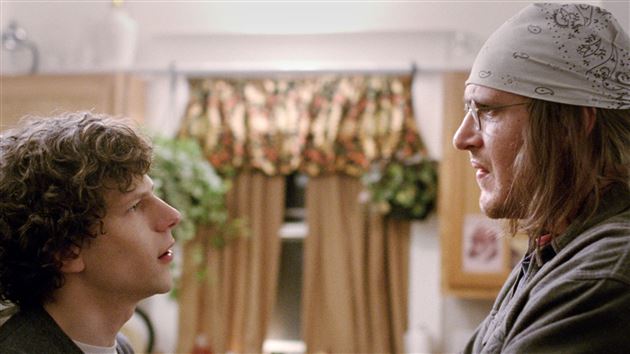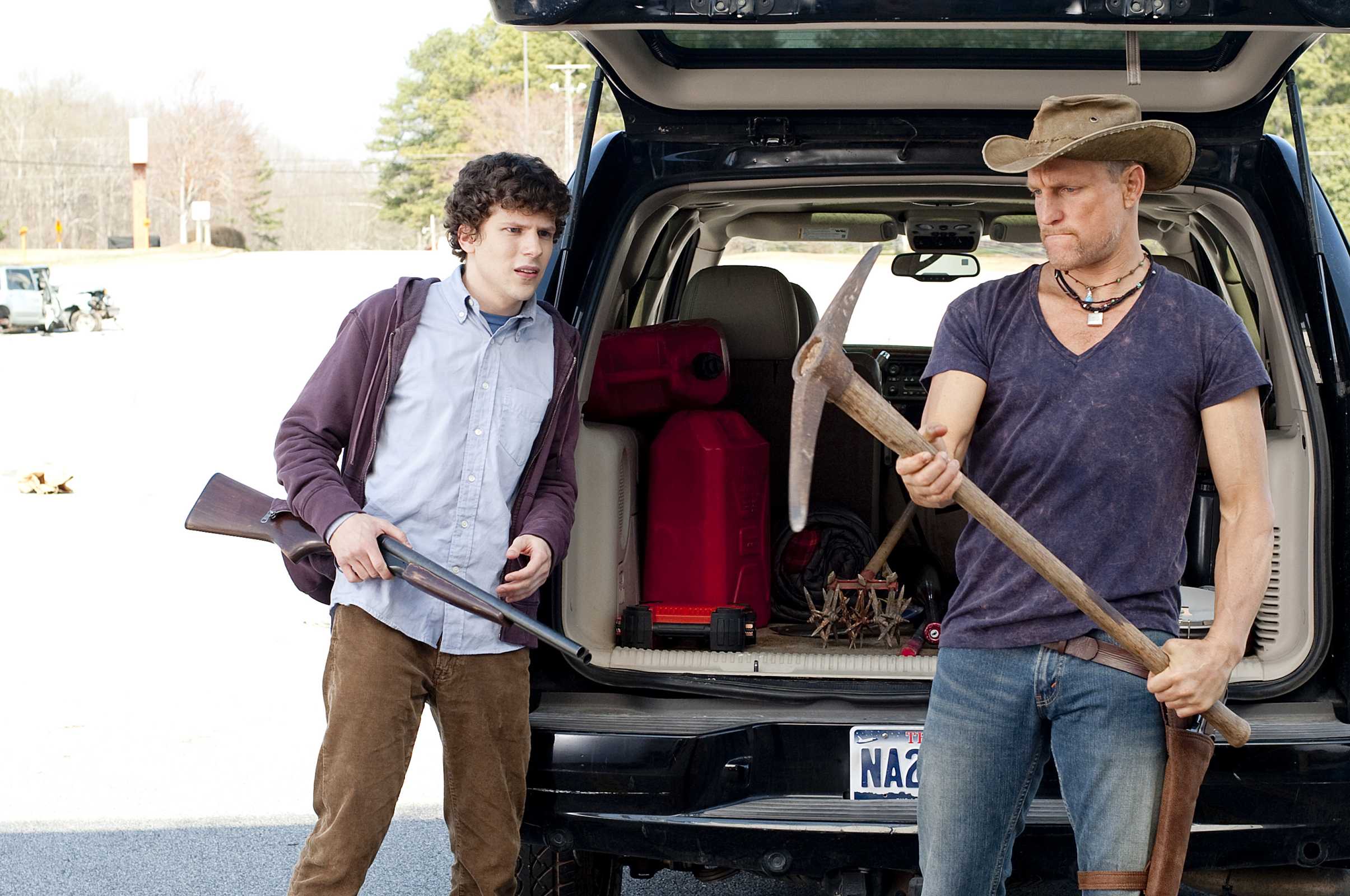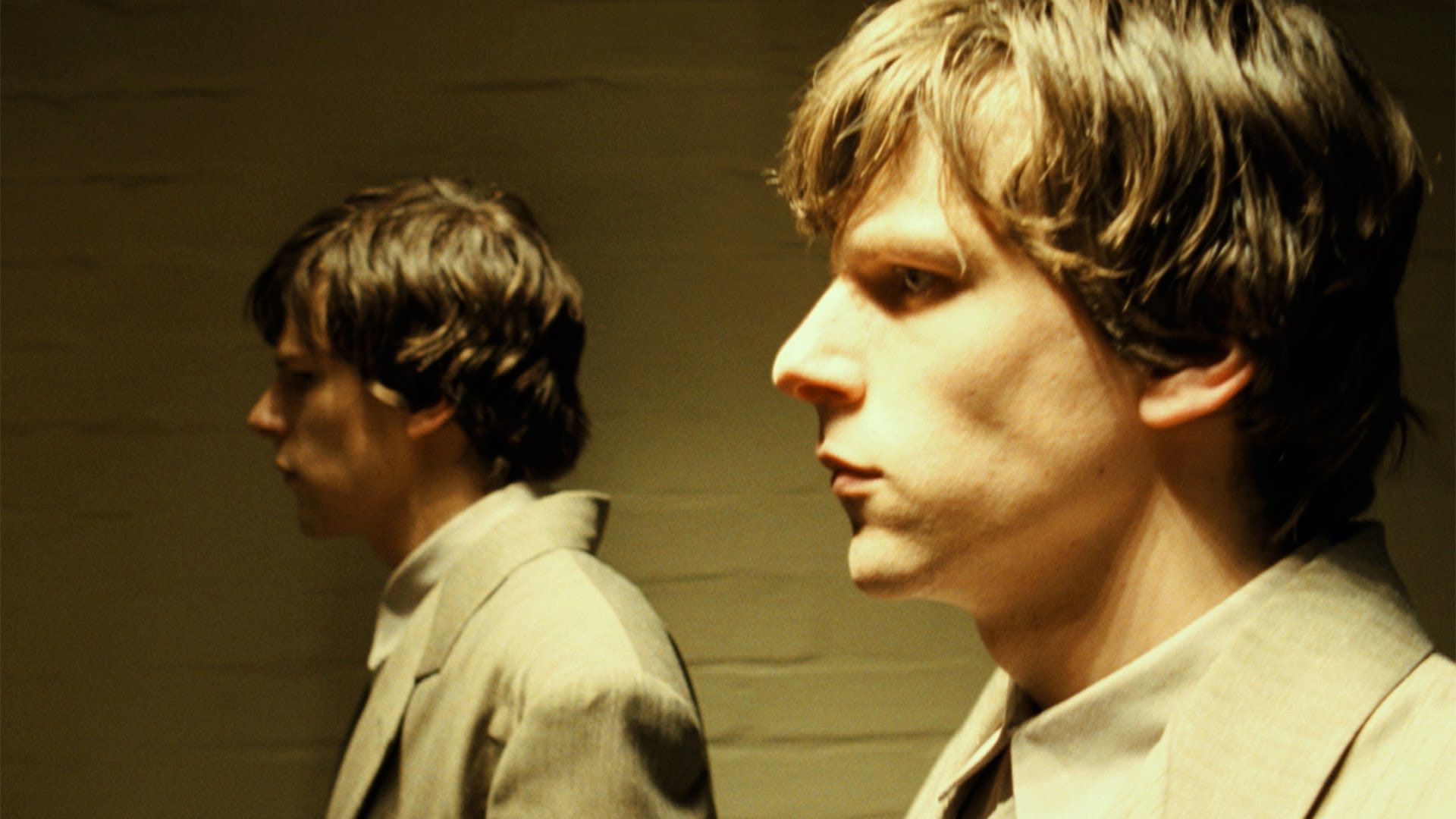5. The End of the Tour (James Ponsoldt, 2015)

Described as “a five-day bender of a talk” and as “lovely little gem” by critics upon its release, The End of the Tour had a tall order to fulfill: doing justice both to David Lipsky’s celebrated book telling of his encounter with legendary author David Foster Wallace and to the man himself, the author of epic dystopic fiction novel Infinite Jest, one of the most revered and talked-about works in contemporary American literature.
It brilliantly does so, offering a bewitching screenplay that defies narrative convention and trust in its performers to breathe life into two characters slowly getting to know each other’s vision of the world.
Jason Segel is the obvious standout as Wallace, of course, all mannerisms and deep understanding of the man’s personality and spirit, but Eisenberg’s Lipsky is the one tasked with the heavy lifting, and the actor doesn’t disappoint, building his character carefully and thoughtfully throughout the film’s 106-minute runtime.
4. Night Moves (Kelly Reichardt, 2013)

Kelly Reichardt’s steady-pulse filmmaking and gift for slowly building tension in stories that never lead to easy, perfectly tied-up endings might not be for everyone. However, there’s no denying she has a knack for channeling her actors’ usual personas into their logical extremes and bringing out something extraordinary in the process.
That’s what she does with Eisenberg here, as he plays the movie’s lead, a radical environmentalist planning, with two of his colleagues (Dakota Fanning and Peter Sarsgaard), to blow up a hydroelectric dam.
Eisenberg’s usual nice-guy neuroticism can serve as a front for something profoundly dark in his characters, and Night Moves takes advantage of his quietly gripping performance to portray a person whose radical dedication to a cause in some ways is a compensation for his difficulties with real human contact. Through the character turns in Night Moves, Eisenberg’s performance provides soul and complexity to a film dependent on both of those things.
3. Zombieland (Ruben Fleischer, 2009)

Contrary to Night Moves, Ruben Fleischer’s Zombieland doesn’t want to explore the darkest depths of Eisenberg’s nerdy/neurotic persona – instead, it allows him to go deeper into the mannerisms and comedic effects of that persona, and the result is a great performance in a film that turns out to be way funnier and more delightful than it ever had the right to be.
Eisenberg plays Columbus, a young guy whose protective, introvert instincts kept him alive through the zombie apocalypse. He meets Tallahassee (Woody Harrelson), and they reluctantly join forces with sister duo Wichita (Emma Stone) e Little Rock (Abigail Breslin) to try and find a safe haven from the epidemic.
Even though Harrelson probably comes out of the movie as the breakout character for the sheer weirdness he portrays him with, Eisenberg provides a solid foundation for the film’s story and world-building while also having truly funny moments he sells spectacularly well.
2. The Double (Richard Ayoade, 2013)

This profoundly strange little movie from Submarine director-writer Richard Ayoade lets Eisenberg loose to give a double performance, with brilliant results.
He initially plays Simon, a clerk in a government agency with a life so absolutely ordinary it becomes depressing – he’s overlooked at work, ignored by the woman of his dreams, and even reviled by his own mother. When Simon is feeling his most powerless, along comes James, also played by Eisenberg, his exact physical double – but a confident, charismatic, charming man.
As Eisenberg gets to play both sides of that spectrum, especially James increasing cockiness and he starts to take over Simon’s life, and the latter’s desperation at what is happening around him, he shows he can work two wholly different characters while also maintaining the evident perception they’re essentially the same person. It’s hard to think of The Double working as it does with a different actor, and that’s a testament to Eisenberg’s performances.
1. The Social Network (David Fincher, 2010)

No surprise here. In a sense, Mark Zuckerberg is the role that Eisenberg was born to play. The physical similarity is not that glaring, but his impersonation of the Facebook creator and CEO is not only uncanny, it has a profound understanding of his journey and the way his story relates to the state of human relationships nowadays.
David Fincher’s The Social Network recounts Zuckerberg meteoric trajectory while showing the young billionaire settling two lawsuits brought by former colleagues (and, in one case, a former friend).
Eisenberg’s performance is not about the fireworks and Zuckerberg’s difficult, sometimes explosive, sometimes calculating personality. It’s about slowly building a character we can truly grasp, and about working alongside the script to found Zuckerberg’s persona in a fundamental loneliness taught to him by the long years he has been ignored and misunderstood by his peers.
“You don’t get to 500 million friend without making a few enemies”, says the tagline for the film. As Zuckerberg, Eisenberg is a man willing to pay the price – even if that price is slighting other people on his way up.
Author Bio: Caio Coletti is a Brazilian-born journalist, a proud poptimist, and has too many opinions to keep them all to himself.